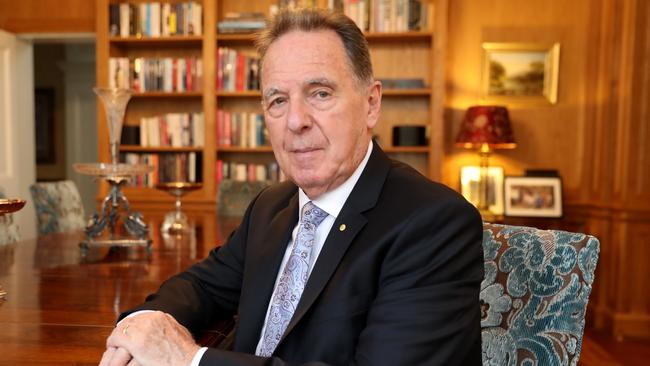
Two fundamental changes are required, and they won’t cause controversy because everyone in the industry knows they are long overdue.
For the last 70 years, whenever capital markets behave badly the community has demanded new regulations. And that’s what is about to happen in superannuation and our thanks go to Graeme Samuel and his team for performing that task.
Unfortunately, during those seven decades, usually the regulations to stop past abuses never covered the next set of problems. So that’s why I now ask Josh Frydenberg and Michael Sukkar to look forward as well as backwards.
The first of my two forward-looking proposals concerns self-managed funds.
The Australian retirement community didn’t know the detail of the wrongdoings in large funds, but they knew something was not right and so about half of those retiring with significant funds in superannuation set up their own fund. And those funds didn’t encounter the same problems as many big funds because the trustees were the beneficiaries.
There had to be money access rules, but people did not knowingly do bad things against their own interests.
It’s been an incredibly successful movement and a model for other countries (the big retail funds spent decades lobbying against self-managed funds when they should have been looking at their own mismanagement).
But now the self-managed fund movement faces a new challenge. The retirees are getting older. The retirement products in large funds are vastly improved and some retirees will reluctantly migrate to large funds, especially if we take the step set out below in improving large funds.
Alternatively, retirees’ strong desire for independence in controlling money will cause them to either migrate to higher-cost solutions or mismanage the money because of health issues.
But there is a real community beneficial solution that will help a vast number of cohesive families where mum and dad are ageing and have a self-managed fund.
The government needs to increase the number of beneficial members that a small fund can have from four to six, and I would go further and make the number eight.
The government proposed an increase from four to six a couple of years ago, but it was rejected by the ALP partly because they were preparing for an intergenerational war---a disastrous set of policies that cost them power.
We did not realise it at the time, but it was an early pointer to the return of a Coalition government.
On behalf of a large number of Australian families I implore Josh Frydenberg and Michael Sukkar to bring back that past government policy and consider lifting the number to eight so that spouses of the children can be made beneficiaries.
For so many families that means investment management of funds can pass smoothly to the next generation while mum and dad are still alive. And remember that, apart from withdrawal rules, because the beneficiaries are the same as the trustees, regulation should be light.
Now when it comes to the big APRA funds, the heart of the future problem is the fact that the disclosure by both industry and retail funds is bad.
We need to follow California and have full disclosure of all activities of public funds with the normal caveats of confidentiality while strategies are being implemented.
Fund members should have a level of disclosure that ranks with those that are running their own funds. And whatever we do must be applied equally to both industry and retail funds.
My understanding is that the industry funds agree that much better disclosure is highly desirable, but justifiably demand equality with retail funds in disclosure regulation. Their performances show that they should not be discriminated against.
When we have full disclosure from all APRA-regulated funds, we will see any bad practices that emerge in funds, whether they be retail or industry.
And if there is full disclosure then those that can’t manage their self-managed fund will have a real choice: if they want to use a big fund they can see what is being done with their money.
But as part of looking forward , the need for disclosure is set to become much greater. For the most part superannuation funds have invested in listed securities and property.
Now the industry funds are proposing to greatly increase their investment in non-listed private equity ventures.
That may make a lot of sense, but it means that they will need to be very upfront about what they are doing and why, plus how the investments are performing and are being valued.
And if we discover that trustees are acting badly in any big fund (retail or industry) then we need the power to change them, which is what Graeme Samuel is proposing.




While we need to prevent repeating past mistakes, it’s time in superannuation for Australia to look forward to what is going to be required to enable our magnificent savings pool to do its job.